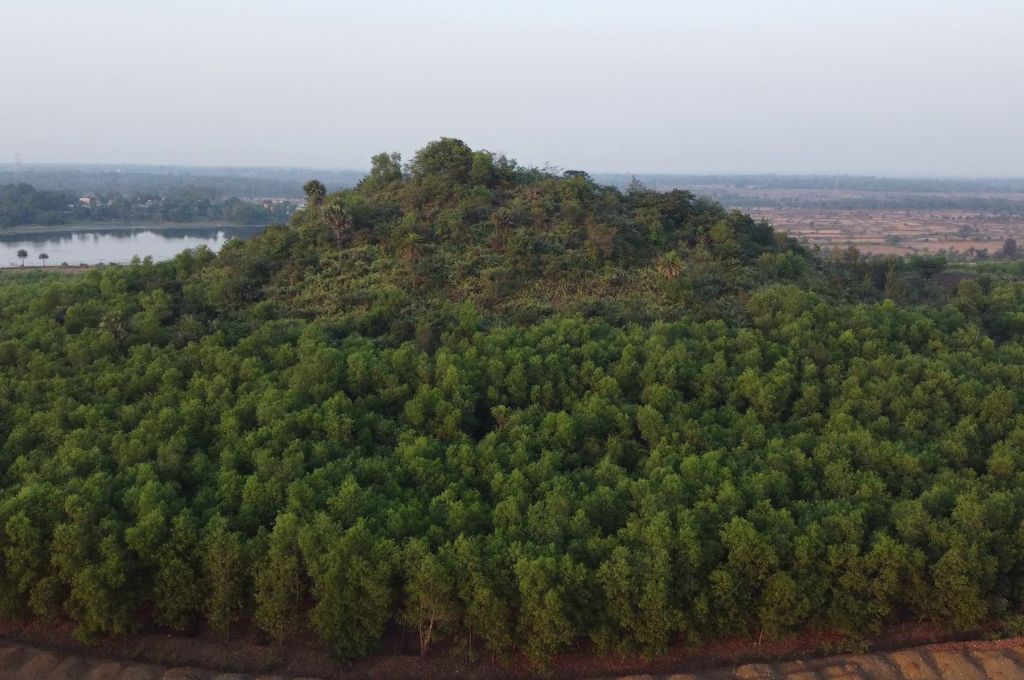Are greener hillocks the key to Bankura’s agricultural revival?
View the entire series here.

In 2002, I got married and moved to Guniada, a village in Bankura district, West Bengal, where I have since lived. This area was once thickly forested, but the surrounding hillocks had become barren over the years. By the time I arrived here, there was no green cover left. We grew paddy and some other food crops but this was not without its challenges; when you looked at the land, you would see more rocks than soil. Those who tried their hand at raising cattle would eventually give up and sell their cows because there were no grasslands for the animals to graze. As a result, many migrated in search of livelihood opportunities.
Bankura receives heavy rainfall, but as the hillocks were bare, they were unable to absorb rainwater. This resulted in water scarcity because our villages didn’t have any means to capture the water that flowed downhill. The panchayat, other government departments, nonprofits such as PRADAN, and the villagers would often gather to discuss ways of conserving water. I started attending these meetings and learned how to create a water harvesting system. Along with others from my area, I developed resource maps on which we depicted the catchment areas and the route through which the water flowed. We took these lessons to our own farms, which allowed us to implement them, make mistakes, ask questions, and eventually succeed. Within a few years, I became a chashi bandhu (‘farmer’s friend’ or farmer resource person) and started helping others in my community to apply these methods.
In the beginning, this job wasn’t easy. We had learned how reforestation of the uplands is closely linked to improving the health of the soil in the lowlands, where we grow crops. But how could we convince others to invest their resources in planting trees? Attempts had been made in the past to reforest these slopes, but the trees never survived for long as the soil was eroded and infertile.
We held many meetings with people in the presence of village elders, who had seen the benefits of nurturing the hillocks. With their help, more people came on board. We made sure not to repeat the mistakes we had previously made, and built trenches on the slopes that absorbed water, thus enabling the trees that we had planted to grow. These trenches also ensure that water does not run off the slopes; rather, it seeps into the soil and trickles down the hill into seepage wells that we have built in the lowlands. Now, with increased access to water, our farmers are growing watermelon, mustard, lentils, and more, and have an additional source of income through the sale of these crops.
Over time, what began as a plantation is slowly turning into a forest. Grass has started growing on the slopes, and our cattle now have a place to graze. As the trees grow, they provide shade to the villagers who accompany their cattle. Our hillocks are greener now; we even have a mango orchard in the forested area. Our people are rearing cattle once more, and many who had migrated are choosing to return home because agriculture here is turning into a feasible livelihood option again. We know that it is a long journey, but now we have a system that works—the revered hillocks support our livelihood, and in return we care for them.
Rinku Gope is a chashi bandhu at PRADAN.
—
Know more: Learn why lack of access to forests is forcing Parhaiyas in Jharkhand to migrate.




